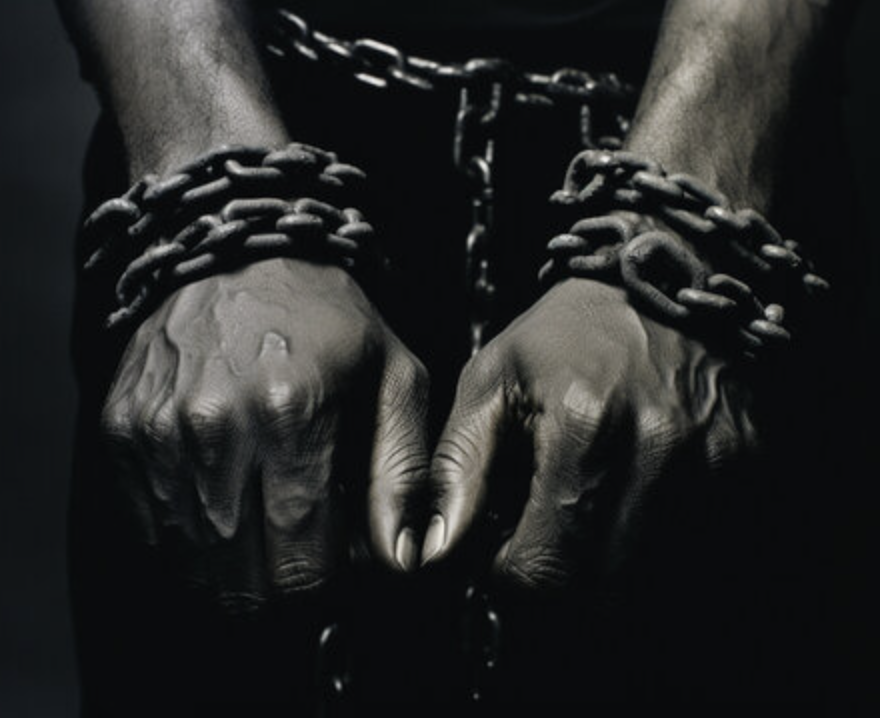Life happens to everyone, it is complicated and different for all of us. It can be unrelenting and sometimes overpowering. We all have different circumstances, yet life does not discriminate when it comes to dishing out hardship. Everyone goes through something at some point and we might feel the urge to compare scars and argue about who has had it worse. I have recently begun to readjust my eyes when I glance at other people’s lives, because now if I see your scars, all I see is life and its various choices.
“I beseech you therefore, brethren, by the mercies of God, that you present your bodies a living sacrifice, holy, acceptable to God, which is your reasonable service.” Romans 12: 1 NKJV

When Paul is writing to the Romans, there were a lot of scars to go round amongst the people who would be recipients to this epistle, and there were even more scars to come for Paul in his own life as well. The life of a believer is difficult, and Paul was urging them to be prepared for any eventuality. The church in Rome actually refers to the believers who assembled together in different gatherings across the city of Rome. They had been internal issues amongst the believing Jewish and Gentile Christians. Culturally theses peoples were vastly different from each other because of their backgrounds, traditions and different values from upbringing. Even today the scars of segregation can become prevalent when you take into account individual prejudices from members of the church. For some time now, I have attended a church which is multi-cultural and full of differing opinions about right and wrong and, while we are all one in Christ as the cord that binds us together, sometimes our origins play a part in who we inherently become. The sense of self in each individual believer is apparent in each person in how they present themselves, what they wear, eat, and to an extend, how they interact with other members of the body. These are based on traditions and where people have been.

As a student of psychotherapy, I learned that a practical definition of culture is ‘how we do things around here’ and it seems to me anyway that everyone wants to reside in a place which is most comfortable and normal to them. It is determined by the assembly of those who are part of the collective. It is also a sociological construct and by nature, rightly or wrongly, the scars of the past are completely ingrained into the decisions each particular collective makes in the present. I can point to evidence in the scripture itself of this ‘culture’ playing a part in decision making. Slavery was a culture for the children of Israel for 400 years, they did not choose to be slaves but it was nevertheless their experience. So when it came to making decisions that promoted liberty for themselves, they found it difficult to break away from what they knew. In-spite of God consistently showing them that they could be more that they imagined themselves to be, some of them could not move away from their learned responses caused by the culture of slavery. This was because the scars of trauma manifested as a resistance to reset and believe in a correct way. Once we are stuck in a battle between change and culture, culture normally always comes out winning. Just as it was difficult for the Jews to accept that the gentiles had become their equals through Christ, it is difficult for us to accept inherent realities in our own lives because the scars of our own past haunt us.

Trauma is defined as a response to a distressing event that overwhelms a person’s emotional ability to cope with its effects and plays a huge part in decision making. Trauma can lead to psychological, relational, and occupational disruptions including anxiety, depression and/or mistrust. I remember some time back, my daughter got burned by a piece of debris from a rubbish fire, and while it healed physically and the scar has all but disappeared, it manifests once in a while in her reactions when she comes near anything that looks like sparks or fire. One time, at an event we had been engaged to lead worship for, she was in the full flow of worship when the technical guy suddenly lit up the pyrotechnics in appreciation of the way the worship was going. We had not been informed that this would be done, and because she was standing right next to the pyrotechnics, it shook her straight out of her posture of worship and you could both audibly hear the change in her voice and see the change in her whole demeanour. The trauma of her past, this scar, removed her from her place of spiritual worship. Although she was still singing ‘Holy forever’, her mind was now residing in a place of fear for the time being, and it took a lot of reassurance to realign her again. Yet you have to ask ,was it reasonable that she went back to that place of subjugation?
Reasonable doubt!

The Roman church also faced external opposition from the Roman government. This is because what the Christians affirmed as a community did not agree with what most of the Roman upper class believed, which was the pantheon of gods they had always worshipped. Some of the believers also had these same beliefs prior and some still bore the scars of these beliefs; that is why Peter, who first set up the roman church tells them to not be drawn in by their old ways (1 Peter 1:14). So the expectation of a change of not only belief but lifestyle also would have been achievable only through a deep commitment to overturn the former rulers of their minds. In our own experience we deal with addictions to drugs, alcohol, pornography and other vices which are gods we carve and place in our lives but should give up in order to embrace what Christ is calling us to ( 2 Corinthians 10:5). There are other practices like adultery , fornication and homosexuality that we need to also bring into subjection, and these leave a legacy of scars which only God can heal us from if we turn to him and not ourselves (1 Corinthians 9:27). But again I ask, is it reasonable to lay these down for Christ?
Scars are a roadmap which narrate a person’s experiences. And just as they are written onto our flesh and seared into our minds and spirit, so is the retrospective look at how we have become who we have become because of those sometimes still painful scars. Paul is calling on the Romans, and all believers to consider God, who gave his Son, by His mercy and grace, to honour God by sacrificing our flesh, so we can be more spiritual (Galatians 5:16-17). And that process will require a transformation from fleshiness to spiritual-ness. Paul tells the Galatians that he is now only alive in Christ (Galatians 2:20); though they see him and experience him physically, he is pointing to the life he has in Christ, no longer pandering to his need to gratify his natural self. He declares he has nailed his flesh to that same cross that represented to him his own rebirth into the life he is living now. In this Paul recognized that because of all the changes that will occur in his life, there will inadvertently be scarring as he is being transformed. This is Paul’s Christology, or in simpler terms, how he view Christ and his relationship with Christ. The scars therefore form as a reminder and a monument to what God has done as He is redeeming Paul. For Paul , that is a reasonable service.
God loved us while we were sinners (Romans 5:8), so to Paul, whatever follows on from the crucifixion is reciprocal. And in my opinion he is right. What should we consider reasonable? In the ESV ’your reasonable service’ is translated ‘your spiritual worship’. Is Paul pointing to what Jesus says to the woman at the well, where he says that true worshippers will worship Him in spirit and truth? I wonder if what Paul is trying to allude to is that what we should consider reasonable can only be viewed from a spiritual place (1 Corinthians 2:13). Given that what is required might look strange in a normal circumstance (1 Corinthians 2:14), Paul is asking believers to engage in a more spiritual conversation about what they are indeed willing to do to serve God, and that this will require seeking His face to understand His divine will. This appeal is reasonable only from a spiritual place, and it cannot be any other way.
So is it reasonable that my daughter can be gripped with fear in one moment because of trauma and the next experience a peace that surpasses all understanding? Is it reasonable that a brother or sister in Christ can struggle with addiction and compulsions and then give it all to Christ and decide to serve Him as Christ renews them? Is it reasonable to go through life’s daily struggles and view them through the lens of ‘my God will fight this battle because He said He would’? To go through health crisis, relationship breakdown, financial ruin, and still call upon the name of the Lord, and serve Him faithfully through the valleys of life? That is for each of us to decide individually (Philippians 2:12). If I am going to get any more scars, let them all be in the service of our Lord Jesus, because I am tired of the ones that have come from doing things in my own understanding.



Leave a Reply